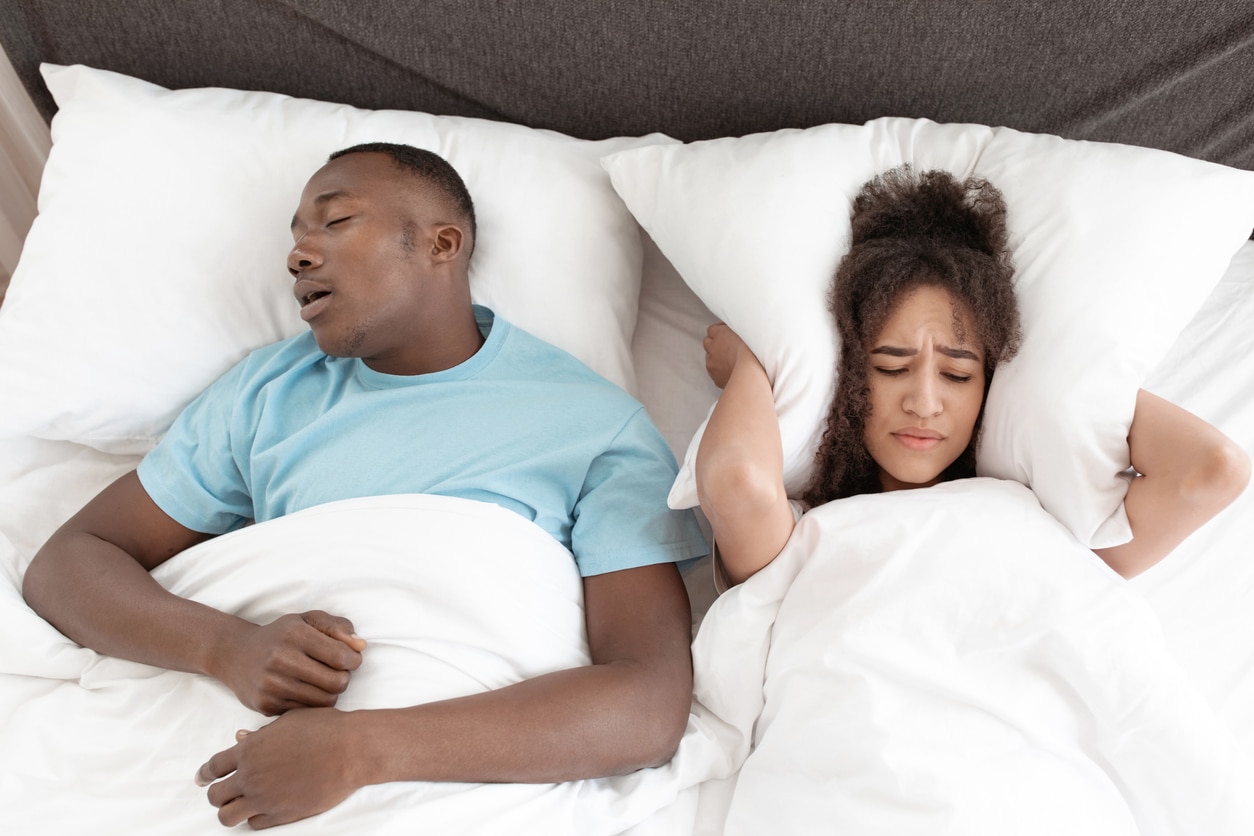It’s estimated that upwards of 18 million Americans have sleep apnea. And many people don’t even realize they have it, most likely because common symptoms of sleep apnea, like fatigue and trouble concentrating, can feel like just a fact of life.
However, if you’re constantly tired with no explanation, experience persistent headaches, or wake up at night gasping for air, you may have sleep apnea! Our experts from the Sleep Center at UAB Medical West are answering your frequently asked questions about sleep apnea, so you can finally get the rest you need—and deserve.
Answering Your Sleep Apnea FAQs
There are three types of sleep apnea: obstructive sleep apnea (OSA), central sleep apnea (CSA), and treatment-emergent central sleep apnea. The most commonly diagnosed version of sleep apnea is OSA, which we’ll focus most of our attention on in these FAQs.
Now that we’re all settled in, let’s start answering your most pressing questions.
What is sleep apnea?
Obstructive sleep apnea occurs when your throat muscles relax, effectively blocking airflow to your lungs. If you’re not getting enough oxygen, your brain alerts you, which is why many people suffering from sleep apnea wake up multiple times during the night. However, you may not even remember waking up and falling back asleep, and often, many people with sleep apnea only visited a doctor because of their significant other’s evaluations.
Is sleep apnea genetic?
While research is ongoing, it’s estimated that up to 40% of sleep apnea cases are hereditary, while environmental factors cause the remaining 60%. Some factors you may inherit from a close relative that can increase your risk for sleep apnea include body fat distribution, facial anatomy, breathing control, and sleep disorders.
How do you know if you have sleep apnea?
Sleep apnea symptoms present differently in every person. Still, some common symptoms include loud snoring, gasping for air during sleep, waking up with a dry mouth and/or headache, trouble paying attention during the day, and irritability. Additionally, some people with sleep apnea may have insomnia, difficulty falling or staying asleep, or another condition called hypersomnia, which is characterized by excessive sleepiness during the day.
As we mentioned earlier, your partner may have more insights into your sleep patterns than you do. They can recognize any episodes when you stop breathing during the night, snore too loudly, or make odd sounds that may indicate a restart of breathing.
Can sleep apnea cause high blood pressure?
Lack of oxygen during the night can lead to high blood pressure and strain the cardiovascular system. High blood pressure, also known as hypertension, can lessen the flow of oxygen and blood to your heart, leading to severe problems like heart attack and stroke. Sleep apnea is especially dangerous if you have a pre-existing heart disease since sleep apnea can cause an irregular heartbeat.
Can sleep apnea cause weight gain?
Sleep apnea and weight gain are in fact closely related. While obesity is a known cause of sleep apnea, conversely, weight gain is also a common side effect of sleep apnea. Many people who suffer from sleep apnea gain weight due to imbalanced hormones or the physical toll the condition takes on the body. For many people, eating and exercise habits decline if they’re not getting enough sleep, which can lead to weight gain.
How can I prevent sleep apnea?
In some cases, sleep apnea can be avoided. Anything you can do to maintain proper breathing, like saline sprays for nasal congestion or elevating your head at night, can aid in oxygen flow. We advise against alcohol, sleeping aids, and smoking, as these can all either hyper-relax the muscles in your throat or cause inflammation. It’s important to note that we also recommend losing weight if you suspect a restricted airway causes your sleep apnea.
Can sleep apnea be cured?
Yes! Treatment for sleep apnea depends on the type and severity of the condition, but sleep apnea can be cured. Numerous remedies are available, including lifestyle modifications, continuous positive airway pressure (CPAP), oral appliances, and, if necessary, surgery. There are a multitude of sleep apnea solutions on the market; however, we recommend talking with your provider before beginning anything OTC or not prescribed by your doctor.
Find Relief with Comprehensive Sleep Disorder Treatment
If you think you have sleep apnea, don’t hesitate to speak with your doctor, as natural remedies aren’t always a comprehensive solution. A sleep expert can diagnose sleep apnea and offer treatment that can make a world of difference in your energy levels and overall quality of life.
At UAB Medical West, we’re dedicated to helping you sleep better. We evaluate and treat patients in our Sleep Center, designed with comfort and luxury in mind so you finally sleep soundly. For more information about our Sleep Center and specialists, visit our sleep clinic page.
Think You May Have Sleep Apnea? Get Diagnosed & Treated Today!
Proudly serving Birmingham, AL, and surrounding areas, UAB Medical West offers world-class sleep disorder treatment in our sleep center. We can treat Insomnia, Sleep Apnea, Restless Leg Syndrome (RLS), Periodic Limb Movements (PLMD), Parasomnias, and Narcolepsy. To schedule an appointment, call (205) 481-7370.
